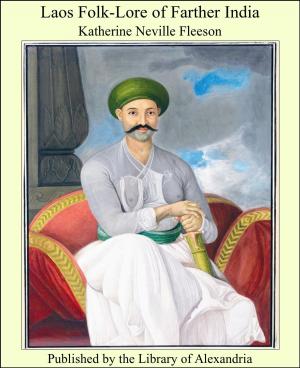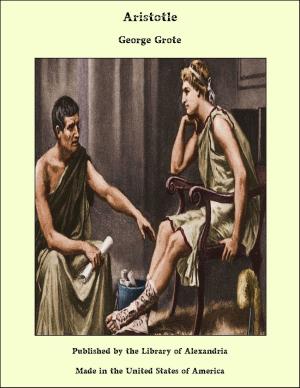The Rose of Old St. Louis
Nonfiction, Religion & Spirituality, New Age, History, Fiction & Literature| Author: | Mary Dillon | ISBN: | 9781465559227 |
| Publisher: | Library of Alexandria | Publication: | July 29, 2009 |
| Imprint: | Library of Alexandria | Language: | English |
| Author: | Mary Dillon |
| ISBN: | 9781465559227 |
| Publisher: | Library of Alexandria |
| Publication: | July 29, 2009 |
| Imprint: | Library of Alexandria |
| Language: | English |
My story does not claim to be history, but in every important historical detail it is absolutely faithful to the records of the times as I have found them. Every word of the debate in Congress, every word of Marbois, Livingston, Decrés, Napoleon, and his two brothers on the subject of the Louisiana Cession is verbatim from the most authentic accounts. I am indebted for the historical part of my story to Gayarré's "History of Louisiana," to Martin's "History of Louisiana," to James K. Hosmer's "History of the Louisiana Purchase," to Lucien Bonaparte's "Memoirs," to numerous lives of Napoleon, Jefferson, Talleyrand, and others, and particularly to Marbois himself, whose account of the negotiations on the subject of the cession is preserved in his own handwriting in the St. Louis Mercantile Library. As to the local color of old St. Louis, both in its topographical setting and in its customs, I have also tried to be exact. And here I am very largely indebted to that simple and charming old writer, H. M. Brackenridge, in his "Recollections of the West" and in his "Views of Louisiana"; and also to Timothy Flint in his "Recollections"; to J. Thomas Scharf's interesting "History of St. Louis," and especially to Mr. Frederic L. Billon, St. Louis's historian par eminence. I make also the same claim for exactness as to the local color of Washington at that early day; for which I have made so many gleanings in many fields—a little here, a little there—that it seems hardly worth while to give special credit to each. In non-essential points I have occasionally taken the liberty belonging to a writer of fiction, having condensed into one several debates in Congress, as well as several interviews between Talleyrand and Livingston, and two interviews between Bonaparte and Marbois. Nor have I hesitated to use the names of the early St. Louis settlers, because they are names still well known and honored in the city which they helped to found. I have touched upon them but lightly, and have tried to make those touches true to the characters of those estimable gentlemen and gentlewomen of the old French régime
My story does not claim to be history, but in every important historical detail it is absolutely faithful to the records of the times as I have found them. Every word of the debate in Congress, every word of Marbois, Livingston, Decrés, Napoleon, and his two brothers on the subject of the Louisiana Cession is verbatim from the most authentic accounts. I am indebted for the historical part of my story to Gayarré's "History of Louisiana," to Martin's "History of Louisiana," to James K. Hosmer's "History of the Louisiana Purchase," to Lucien Bonaparte's "Memoirs," to numerous lives of Napoleon, Jefferson, Talleyrand, and others, and particularly to Marbois himself, whose account of the negotiations on the subject of the cession is preserved in his own handwriting in the St. Louis Mercantile Library. As to the local color of old St. Louis, both in its topographical setting and in its customs, I have also tried to be exact. And here I am very largely indebted to that simple and charming old writer, H. M. Brackenridge, in his "Recollections of the West" and in his "Views of Louisiana"; and also to Timothy Flint in his "Recollections"; to J. Thomas Scharf's interesting "History of St. Louis," and especially to Mr. Frederic L. Billon, St. Louis's historian par eminence. I make also the same claim for exactness as to the local color of Washington at that early day; for which I have made so many gleanings in many fields—a little here, a little there—that it seems hardly worth while to give special credit to each. In non-essential points I have occasionally taken the liberty belonging to a writer of fiction, having condensed into one several debates in Congress, as well as several interviews between Talleyrand and Livingston, and two interviews between Bonaparte and Marbois. Nor have I hesitated to use the names of the early St. Louis settlers, because they are names still well known and honored in the city which they helped to found. I have touched upon them but lightly, and have tried to make those touches true to the characters of those estimable gentlemen and gentlewomen of the old French régime















